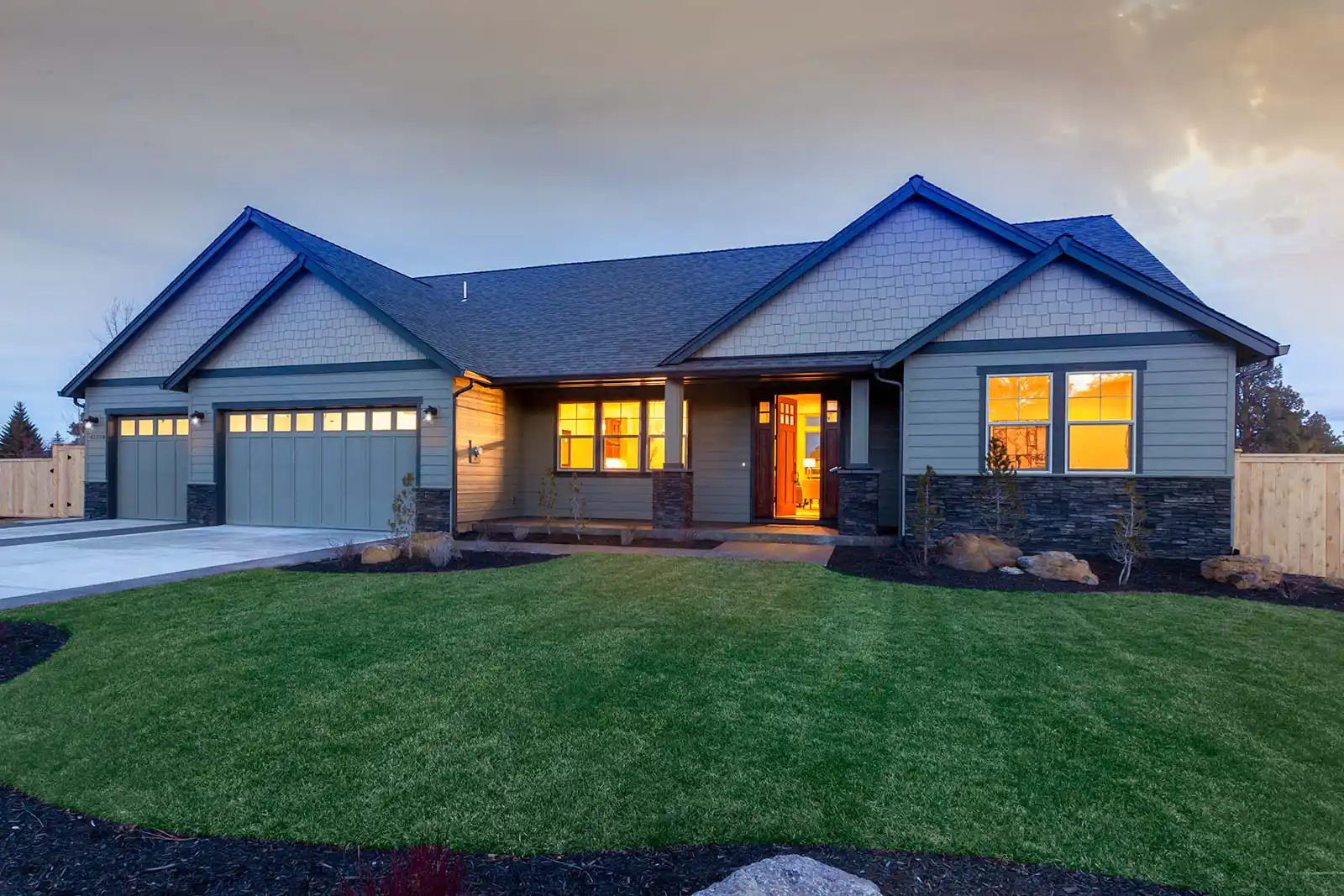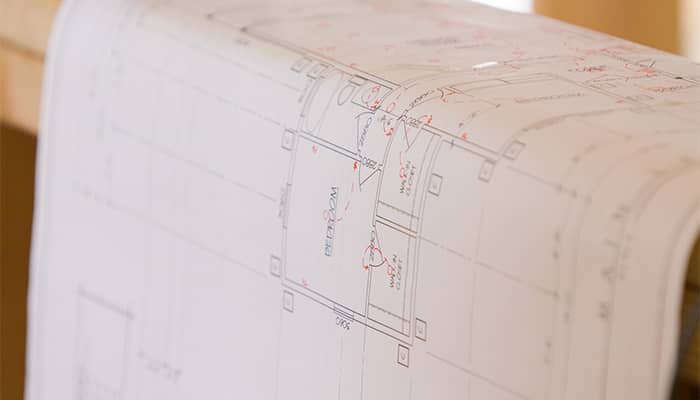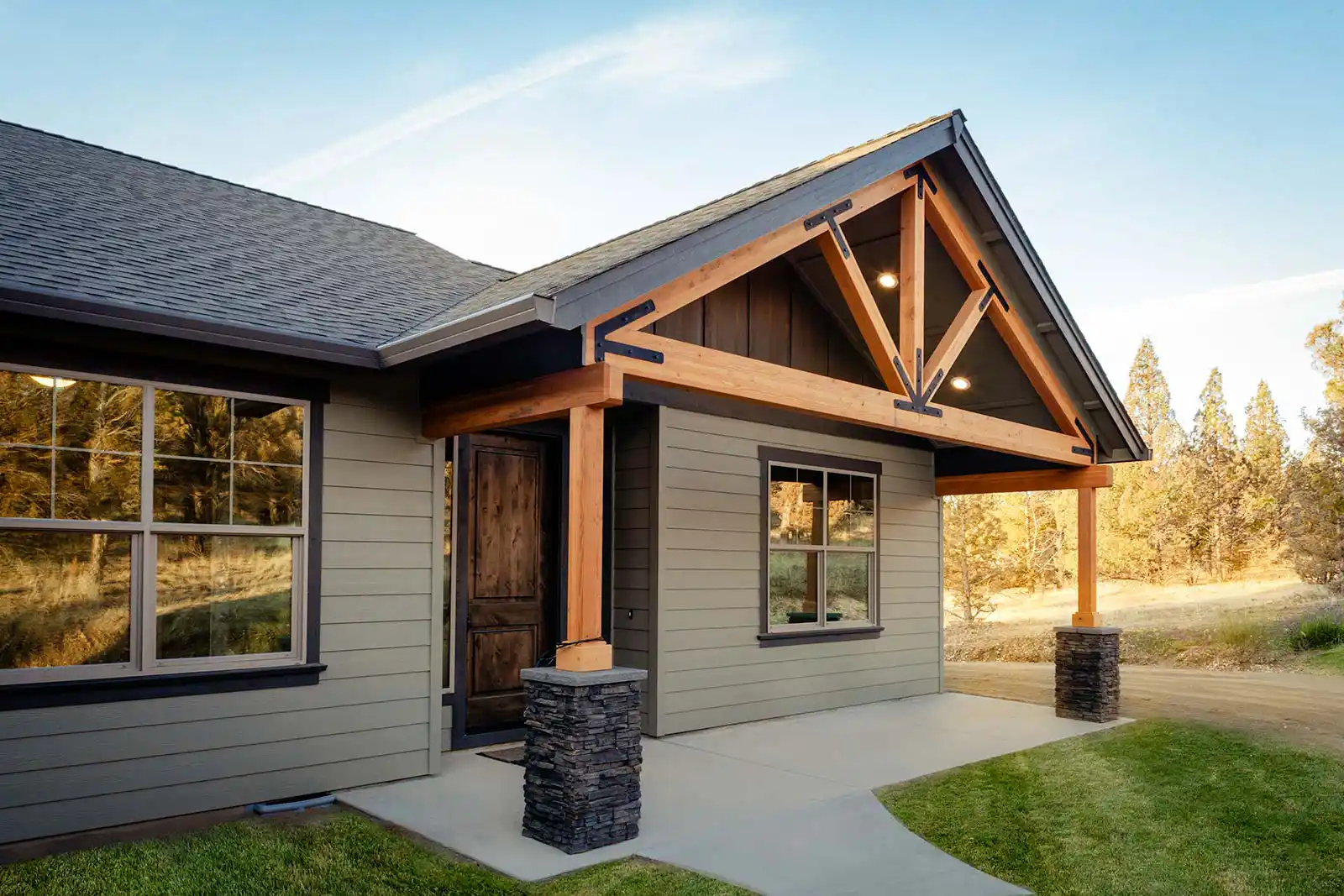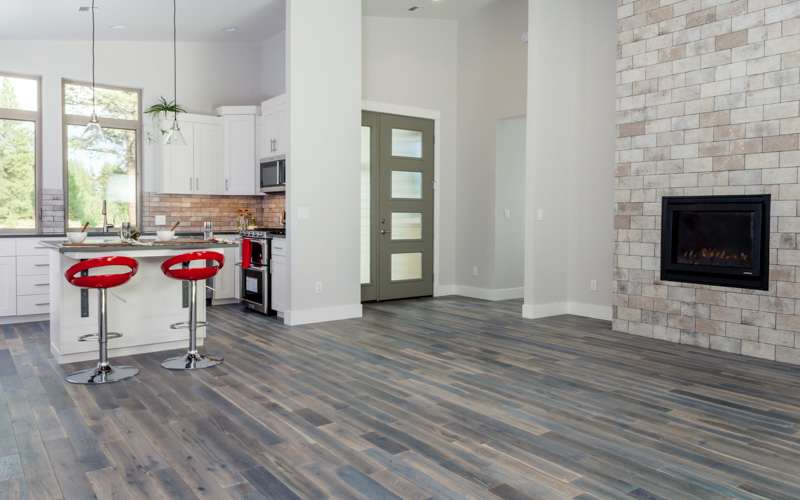
Building your dream home sure is an exciting journey. Like any adventure, though, proper preparation is key. Before the foundation is poured or the first brick is laid, understanding a few key points can transform your experience from stressful to smooth.
Here are seven things we think you need to know before embarking on your home-building journey:
- Determine what you need in a home as early as possible.
- Set your home budget ahead of time.
- Decide how you’ll pay for your home build.
- Choose your home location wisely.
- Research homebuilders carefully.
- Hold your home-building timeline loosely.
- Enjoy the home-building process.
Let’s dive into each one of these to make sure you’re all clear on what to know when building your house. But before you get started, read up on when the best time of year is to build a new home!
Table of Contents
- Determine what you need in a home as early as possible.
- Set your home budget ahead of time.
- Decide how you’ll pay for your home build.
- Choose your home location wisely.
- Research homebuilders carefully.
- Hold your home-building timeline loosely.
- Enjoy the home-building process.
- Are you ready to build your dream home?
1. Determine what you need in a home as early as possible.
Before you do anything else, you want to think about your lifestyle and needs. Your dream home has to be informed not only by where you are but where you will be in life over the coming years.
- Family Needs — Will your family expand with more kids in the future? Do you need dedicated play areas or multi-generational living spaces for in-laws or adult children?
- Work-Life Balance — Will you be working from home like so many folks these days? If so, you may want to include a designated office space as part of your build plan
- Entertaining Options — Do you have people over regularly? How often do you host gatherings? Do you prefer to be outside when you have a gathering, or would you like space for hosting guests all year round?
- Storage Solutions — Factor in storage for seasonal items, sports equipment, hobbies, and more. What else might you want to store? Ensuring you have enough space will prevent you from having to opt into a storage unit down the line.
These bullet points and questions should help get your imaginative energy flowing. We’re not saying that you can plan for every contingency or that you’ll necessarily have everything you could possibly dream of in your home build. But it certainly helps to brainstorm about all your needs and wants first and then narrow down from there—rather than attempting to tack on fixes that break the budget later.
2. Set your home budget ahead of time.
Building a home is a serious financial commitment. Building a house in Oregon costs around $170 per square foot or more on average. Remember that you will also have to purchase land, permits, furniture, and other furnishings for your new home, which all add to your total expenses. Be honest with yourself about what you can comfortably afford. You want to strike the right balance between achieving your dreams and a reasonable price.
Think about the most expensive parts of building a new house first, like the foundation, lot, and framing first.
3. Decide how you’ll pay for your home build.
Financing options for your new home build can seem complicated. We run down the typical options below. If you’re interested in learning more, New Era Homes has been featured in the Cascade Business News on land loan options in Oregon.
The Land
- Bare Land Loan — This option allows you to purchase the land upfront and secure a separate construction loan later. It gives you more control over the property but typically requires a larger down payment and is often accompanied by higher interest rates.
- Home and Land Package — Often offered by property developers, this is combined financing for both the land and construction. These loans allow you to purchase both a house and land at a fixed price.
The Home
- Construction-to-Permanent Loan —This loan covers the construction costs and then rolls over into a traditional mortgage once your home is built. These loans can sometimes require stricter credit qualifications.
- Construction-Only Loan — These loans provide the funds upfront to build a home but are typically required to be settled in a year or less. You can pay cash (of course!) or obtain a mortgage to repay the construction loan.
4. Choose your home location wisely.
Depending on where you’re looking to build your home, your location may be limited by the available land options. If you do have choices in front of you, make sure you carefully consider which location works best for you and your family.
- Proximity and Convenience — Land might be more affordable in less densely populated areas, but think about your commute times to work, school, and other amenities. A daily commute that’s an extra 20 minutes one way adds up to 3 hours and 20 minutes a week, over 13 hours a month, and 160 hours a year. That’s a lot of time for just 20 minutes further out—not to mention all the other additional commuting time to amenities.
- Lifestyle Preferences — In addition to commute times, you also want to make sure that you enjoy your surroundings. Does a serene environment bring you peace and joy? Maybe the longer commute is worth it for some peace. Would you rather be close to the hustle and bustle and near your favorite amenities? Then you probably will want to pay a little more for land to secure a location that’s most convenient for you.
- Safety and Security — Tools like SpotCrime can help you research crime rates and other data at the neighborhood level to ensure that you end up in a location that is safe for you and your loved ones. Just be sure that you don’t judge the neighborhood by appearances only. Data is your friend when deciding where you want to build your home.
It sure is cliche, but: location, location, location! You can’t take too much care when deciding where to build the home of your dreams. Take a walk in the area. Bring your family or friends along. Try meeting some of the neighbors. Choosing your location wisely will help you make the most of your new home.
5. Research homebuilders carefully.
Partnering with the right builder is imperative for ensuring a smooth and successful construction process. You might want to start by looking at local builder associations. Local association members provide a great place to start your search, as members are typically vetted in some way.
Don’t be afraid to ask questions, either. You want to make sure you have all the answers you want to make an informed decision. Here’s a sampling of what you might consider asking:
- Will the builder give you references of recent buyers or occupants?
- What are standard features versus custom options?
- Can any rooms be left unfinished so that the buyer can paint or do some DIY work?
- What is the warranty program like?
- Does construction include any sort of hardscaping or landscaping?
- How flexible are the floor plan options?
Ask whatever matters to you most. Credible builders will be happy to answer any questions you might have about how they operate, the home-building process, and anything else that piques your curiosity.
At New Era Homes, we’re eager to listen to our clients and collaborate with you every step of the way. Feel free to reach out to us with any questions you might have about building your dream home.
6. Hold your home-building timeline loosely.
Building a home is a labor of love, especially for builders who cherish their craft. If you include pre-construction, a home may take up to two years to build. With factors like weather delays, material shortages, and other unforeseen bumps in the road, you’ll want to keep your timeline somewhat flexible.
Quality builders will keep the process moving forward, but you may need to adjust your expectations as the project matures. Communicate openly with your builder but just expect that your timeline may need to shift, and your move-in date may not occur as quickly as you may have originally hoped.
7. Enjoy the home-building process.
Building your dream home is a once-in-a-lifetime adventure. You might feel like you’re drowning in details at any given moment, so don’t forget to take a step back and savor the journey. Once you’re making memories in your new home, you’ll be glad you did.
- Visit the site regularly — You’ll want to clear visits ahead of time with your builder, but you’re in for a real treat if you can witness the transformation of an empty lot through to the completion of your home. Take plenty of photos and videos so you can relive the journey later.
- Celebrate milestones — Marking significant points along the way can be a fun way to enjoy the home-building process. Share a toast with your family and builder when the roof goes on or throw a little party after the windows are installed. Little celebrations can help keep the excitement alive—and give you a chance to relax!
- Communicate openly and honestly — Remember that this is your house! You want to respect your builder and their expertise, but if something seems off to you, or if you have a concern or an idea, don’t hesitate to make your voice heard. Taking an appropriate level of ownership over the process and decisions can help you get the most out of your new home.
You know how people say that the journey is half the fun? Well, okay, that probably doesn’t apply here. You’re going to have a lot more fun in your house than you are watching it go up. But that doesn’t mean you can’t still at least have a little bit of enjoyment along your home-building journey!
Are you ready to build your dream home?
If you’re interested in building a semi-custom home in Central Oregon, New Era Homes is your go-to builder. From the initial blueprints all the way to the bliss of move-in day, New Era is dedicated to serving you with unmatched expertise, uncommon standards, and uncompromising quality.
At New Era Homes, we’re interested in building laughter, memories, and a lifetime of happiness just as much as we are in crafting homes. Take the first step toward your dream home today. Let’s build something remarkable together.



